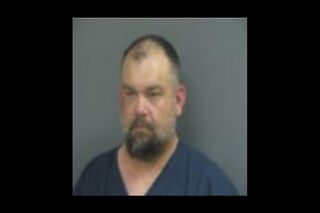Adolescence
What Kind of Son Kills His Dad?
Three paths to parricide and the one James Edward Riley took.
Posted May 17, 2022 Reviewed by Ekua Hagan
Key points
- On March 5, 2021, James Edward Riley killed his father, claiming it was because his father was "mean and getting meaner."
- Children who kill a parent tend to fall into three groups: chronically abused, severely mentally ill, or antisocial.
- Riley had a history of domestic violence and child abuse charges, suggesting he falls into the antisocial category of parricide offenders.

I have seen parents humiliate, beat, starve, abandon, and otherwise mistreat a child in ways I never imagined before I became a forensic psychologist. Time and again, I have seen a child desperately clinging to the thinnest shred of attention or love. I don't know if it's a survival instinct or something else, but the bond between a child and a parent is difficult to sever, no matter how unearned or twisted.
Rarely have I encountered the reverse. The taboo against raising a hand against a parent is universal. It transcends all religions, races, and cultures. Parricide—the killing of a parent by a child—accounts for only 2% of all homicides. In 2017, for instance, there were 15,129 murder victims in the United States. Among those victims, 169 were mothers, and 186 were fathers whom their children killed. Sons are more likely to kill than daughters and, when they do, they tend to target fathers.
On Friday, March 5, 2021, that's exactly what James Edward Riley did.
Who Is James Edward Riley?
On May 12, 2022, 46-year-old James Edward Riley pleaded guilty to the second-degree murder of his father, 73-year-old Edward Riley.
The victim's wife discovered his body in the trunk of his vehicle at the family's farm. His wife told police she had returned from running errands and noticed that her husband's car was parked in a "strange location." Curious, she investigated and found his body inside the trunk, covered with a tarp. She also noticed a pail of dirt and a hoe. Her son, James Edward, wasn't home. She then called the police.
Of course, James Riley was an immediate suspect. He initially denied any involvement in his father's death, alleging he saw two men hanging around their property shortly before the murder. He also said he had a feeling he was being "set up."
Riley's story did not make sense. Investigators soon found incriminating evidence, including a pair of son Riley's shoes with blood on them. They also found spots of blood close to the house and a blood-spattered shovel leaning against a tree.
It didn't take long before James Edward Riley, who initially denied any wrongdoing, folded like a bad poker hand. Investigators say James Riley confessed to hitting his father in the head with a hammer a couple of times and then stabbing him a couple of more. The reason? His father was making noises James didn't like. Court documents state Riley then admitted to putting his father's body in the vehicle's trunk.
A Preview of Things to Dark Things to Come
It will probably come as no shock that James Edward Riley has been violent before. He pleaded guilty to felony domestic assault in June 2014. An article in the Rochester Post Bulletin reported that on February 27, 2014, Riley's 7-year-old daughter showed up at school with a golf-ball-sized knot on her head. She told her teacher she had a headache.
When asked what happened, she said that her father had "picked her up, hung her by her feet and lifted her over the stair railing" as punishment for hiding cereal. While she was hanging upside down, she hit her head on the railing.
The victim's 5-year-old brother and 9-year-old sister told investigators that their parents had been mad at the 7-year-old and that their father had said, "I'm sick of you lying," before hanging her over the rail by the feet. Both Riley and his wife denied that this event occurred. He was charged with two felony charges, including one count of malicious punishment of a child and one count of domestic assault.
What Kind of Person Would Kill His Dad?
Research on children who kill a parent has consistently found three distinct groups. The severely abused offender is the one that most often comes to mind, particularly when we are talking about teens who kill parents. It is also the most common.
This is the chronically abused child who reaches the end of his or her rope and kills either out of desperation ("there's no other way out") or terror ("he's really going to kill me this time"). Often the teen has tried unsuccessfully in the past to get help from another adult, perhaps another family member or a teacher. But they have not been believed, or there was insufficient evidence. Ironically, the lack of intervention reinforces the child's perception that they are trapped in a dangerous situation with no way out. Something happens—as minor as an argument or as major as an injury—and the teen decides it's the last time they will be a victim.
This might seem like a clear-cut case of self-defense or, at the minimum, extreme extenuating circumstances. Surely a judge or jury will understand why this teen could no longer deal with the situation.
Not necessarily.
On July 4, 1990, after being repeatedly raped by her alcoholic father for 10 years and threatened with death if she told anyone, 18-year-old Stacey Lannert heard him molest the little sister she'd tried so hard to protect. That night, after he fell asleep, she shot him to death. She was sentenced to life without parole but, after serving 18 years, was pardoned by the governor.
The second kind of parricide offender is the severely mentally ill adult.
This offender often has a lengthy psychiatric history, has been diagnosed with a severe mental health disorder, and has a pattern of discontinuing his psychotropic medication due to either unpleasant medication side effects or a lack of insight into his illness. The murder is often a response to his symptoms; he may, for instance, be hearing voices that he believes are from God telling him to kill his parents or believe that an imposter has replaced a parent.
Liddiard went off his medications because they made him groggy, and he wanted to be more productive doing volunteer yardwork for his church and reading to schoolchildren. He began calling his father Satan and telling his parents to repent and cast out their evil spirits.
His sister called his psychiatrist, who suggested they wait until his next appointment. His parents called the police, who came by when Liddiard wasn't home. On November 4, 2017, Robert John Liddiard stabbed his parents to death, believing that Satan had already murdered them and taken over their bodies. The judge ordered Liddiard to a term in the state hospital equivalent to life in prison without the possibility of parole.
The antisocial parricide offender typically kills for selfish reasons. Someone has gotten in the way of something they want, and murder is their way to fix it. Perhaps an adult child has gotten tired of waiting for what he perceives is a long overdue inheritance. Maybe it's a teenager who gets rid of a parent who wants her to get rid of her bad-news boyfriend. These offenders often have a history of manipulative or criminal behavior and a lack of empathy for others. They know what they are doing, and any remorse they feel is about getting caught, not the pain they have caused.
Where Does This Offender Fit In?
I've never evaluated James Edward Riley. I've never even met him. So, I can only speculate about what kind of offender he is, based on publicly available information. But it does give us some clues.
Clearly, Riley is not currently an abused child; there is no mention anywhere that he was ever abused. When he confessed, Riley told police that his dad was "mean and getting meaner." He claimed that his father screamed at his mother and wouldn't let her travel. Riley's mother, however, told investigators that her son was difficult to get along with and "felt like he should've been given everything by his parents," and had previously expressed a desire to kill his dad.
There is also no indication that mental illness played a role. Weeks after his arrest, Riley went through a series of psychological examinations to evaluate his mental state. He introduced no psychological evidence to mitigate what he had done. A report was filed with the court on May 12, which declared him competent to stand trial and capable of proceeding.
Things start sounding familiar when we get to the antisocial killer. Riley has a criminal history, including violence against family members. He had made threatening statements against his father before and was described as entitled and selfish by his mother. She also hinted at a financial motive for his crime. Perhaps the most disturbing part of Riley's story is that he killed his father right in front of his three young children.
The Bottom Line
We don't know what combination of genes, life experiences, and personality traits shaped the man James Edward Riley turned out to be. But we do know that he left a trail of trauma and heartache behind him.




